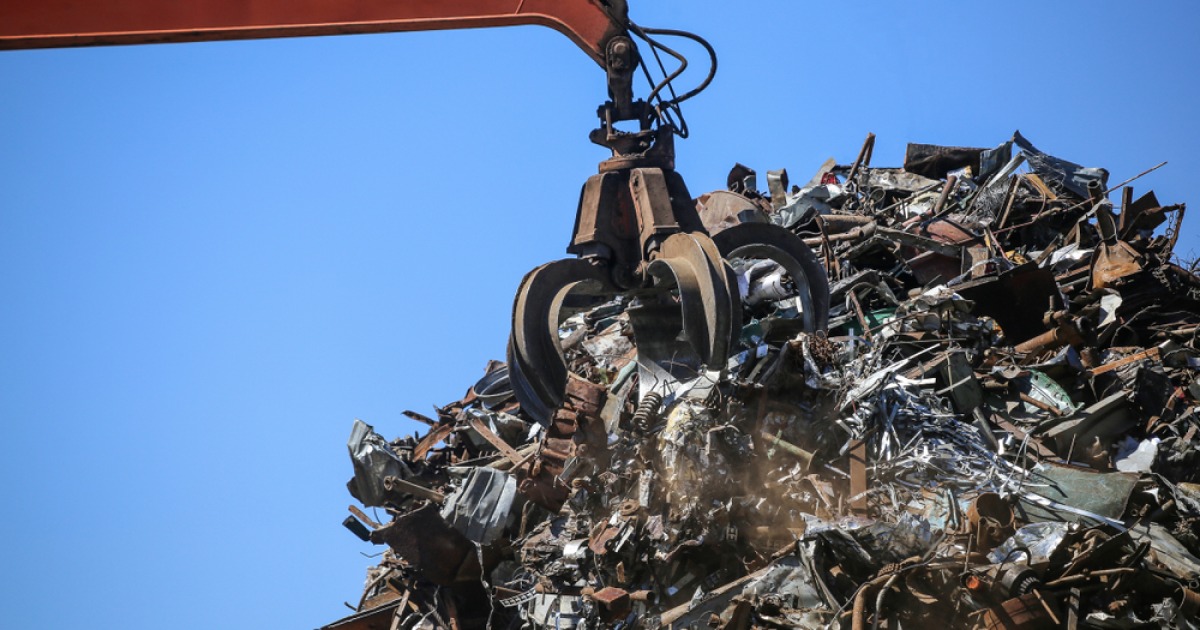India–US Trade Tensions Rise Over Steel and Auto Tariffs NMDC Limited reports a 38% drop in Q4 FY24 consolidated net profit RINL to Raise $23 Million Through Land Sales Amid Crisis

India's metal recycling industry, a crucial player in the nation's journey towards a circular economy, faces challenges due to existing policies, Goods and Service Tax (GST), and import duties. Industry leaders emphasise the need for urgent policy adjustments to enhance the circular economy and propel the metal recycling sector. This article explores the hindrances faced by the industry and advocates for comprehensive reforms to align India with global sustainability goals.
Officials from industry bodies, particularly the Material Recycling Association of India (MRAI), have highlighted significant obstacles hindering the metal recycling sector's growth. These include the current GST rates, import duties, and the absence of initiatives fostering a circular economy. The sector faces a 2.5% duty on scrap imports, sending a conflicting message to the world about India's commitment to sustainable practices.
Europe, a major scrap exporter, is tightening regulations, making it challenging for non-OECD countries like India to import scrap. The European Union is considering a ban on scrap exports to non-OECD countries by the end of 2026. This impending challenge necessitates proactive steps from India, including the removal of import duties, to maintain a steady supply of scrap materials critical for recycling.
Dhawal Shah, the senior vice-president of MRAI, emphasised the urgency of removing ambiguity in policies to showcase India's commitment to a circular economy. As scrap-exporting countries tighten regulations, India must align its policies with global sustainability standards. Policy adjustments are crucial not only for compliance but also for fostering a thriving metal recycling industry that contributes to reducing emissions and promoting a sustainable environment.
One of the hurdles faced by the metal recycling industry is the high GST rate of 18%, coupled with increasing operational capital costs. Industry leaders, including MRAI President Sanjay Mehta, advocate for a reduced GST rate of 5% to encourage the use of domestic scrap over imports. Currently, domestic scrap accounts for 25 million tonnes, while imports stand at 5 million tonnes, highlighting the potential for growth in the domestic recycling sector.
The MRAI conference in Kolkata called for significant reforms in non-ferrous metals customs duty. The president of MRAI, Sanjay Mehta, urged the government to waive non-ferrous import duties, aligning them with the existing waiver for ferrous scrap imports. This alignment is crucial to ensuring a consistent supply of scrap materials for recycling. Additionally, the industry calls for subsidies and tax credits to incentivise investments in recycling infrastructure, reflecting global practices like the US Inflation Reduction Act.
As India experiences a surge in solar power adoption, there is a growing concern about managing end-of-life solar panels. Industry experts, including Dhaval Shah of Metco Ventures, emphasise the need for policy interventions to develop an ecosystem for recycling solar panels. With an estimated 200,000 metric tonnes of solar panel waste expected by 2035, addressing this challenge requires proactive measures, including standards for scrap handling and capitalising on lessons from other countries.
Union Steel Minister Jyotiraditya Scindia, speaking virtually at the event, acknowledged the industry's demands. He assured that the government is playing a facilitative role in establishing an ecosystem for scrapping and expressed commitment to creating a conducive environment for the industry's growth. The industry, comprising over 20,000 SMEs and large enterprises, is a significant contributor to employment, employing over 25 lakh people directly and indirectly.
India's metal recycling industry stands at a critical juncture, facing challenges that require immediate attention and policy reforms. Aligning with global standards, reducing import duties, and introducing subsidies are pivotal steps to foster a circular economy and ensure sustainable growth. As the government demonstrates commitment to addressing these concerns, the metal recycling sector can play a pivotal role in India's journey towards a more sustainable and environmentally conscious future.
Also Read : Ayodhya Ram Mandir: Monumental investment transforming Uttar Pradesh's destiny India remains net steel importer despite 15% drop in Jan–Oct 2025 imports